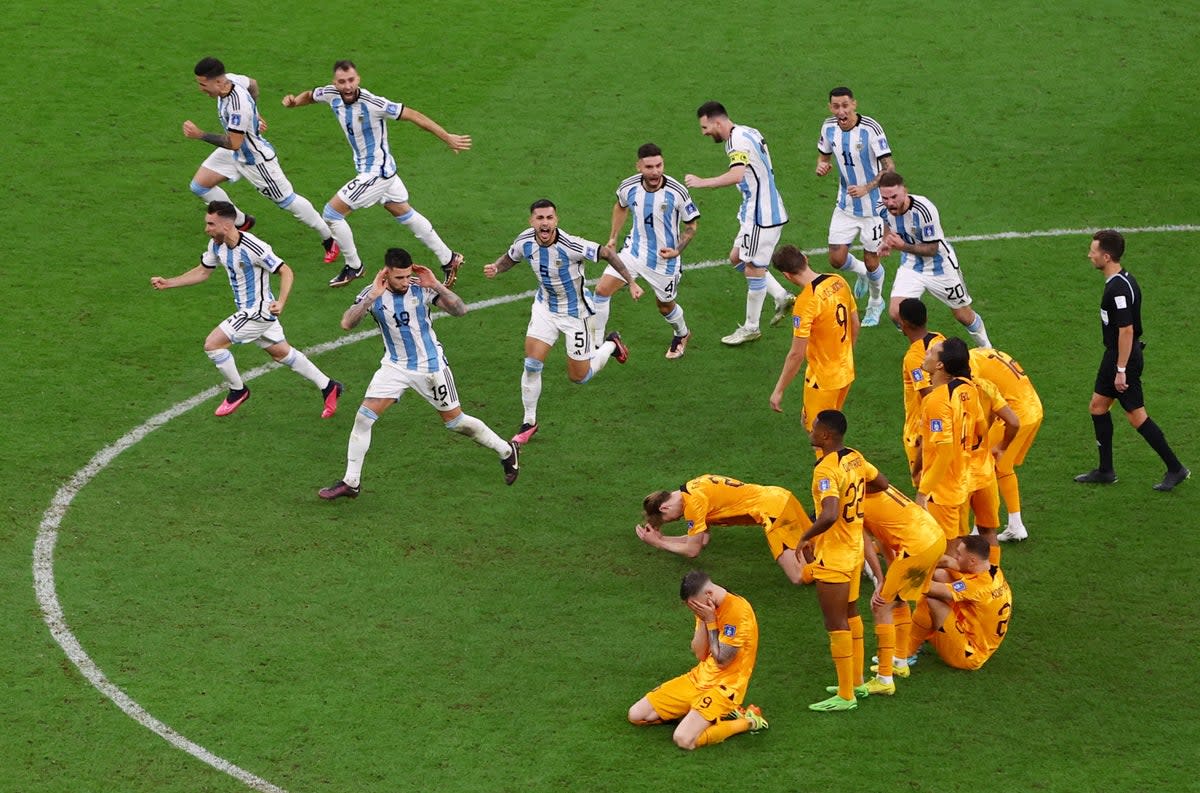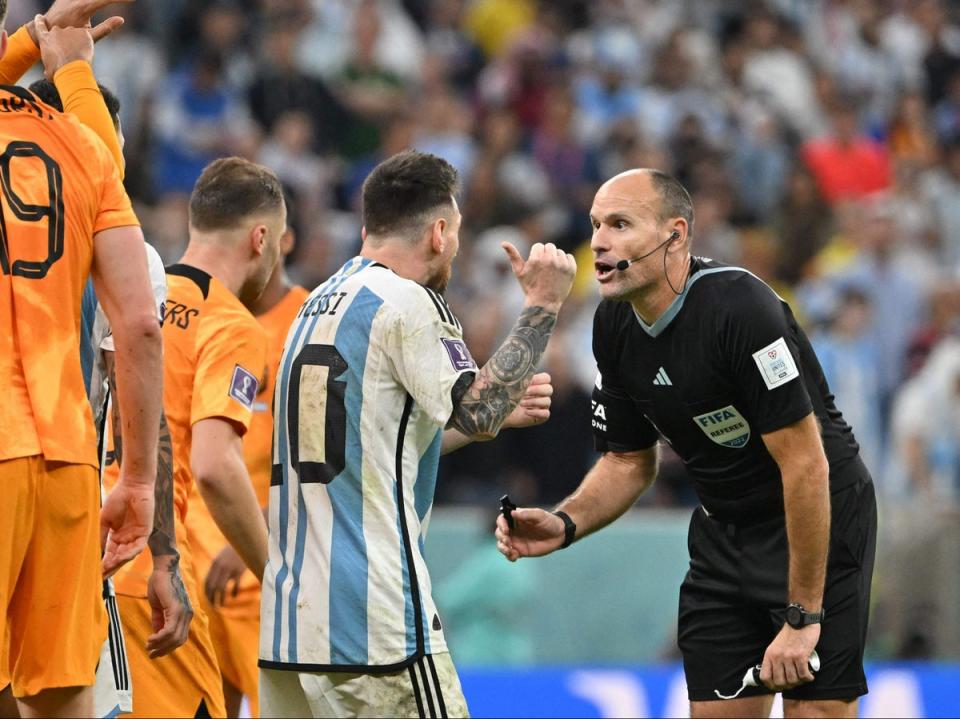Argentina show fire and fragility as emotions spill over in World Cup quarter-final

Even though Lionel Messi had let himself go in the celebrations, he wasn’t going to let it go in the tunnel. The Argentina captain had already angrily challenged a member of the Dutch camp after his confrontation with Louis van Gaal, shouting: “What are you looking at, fool? Go on, fool.”
Messi then went on himself.
"Van Gaal says that they play good football but what he did was put tall people on and hit long balls,” he said.
“I was very angry when they equalised, it didn’t seem just,” he later added. “The referee was like that all game.”
Many might dispute that interpretation, especially since Messi was fortunate not to get sent off during Argentina’s dramatic win over Netherlands, and it really just seemed a case that referee Mateu Lahoz had lost control of the game. He was another element that caused it to crackle with an energy and emotion rarely seen even in a World Cup quarter-final.
What was so interesting, however, is how Argentina continued like that. Even Messi, in this sort of mood, cut a figure we have rarely seen.
It was all the more surprising since the defeated side seemed all too willing to calm it down. Netherlands could have been aggrieved but many of their players were magnanimous towards Argentina, and even very admiring of the level they went to try and win.
They seemed to recognise that it’s a will only the World Cup can bring out.
“This is football,” Memphis Depay said in the mixed zone. “You play with the heart. It’s more than a game.”
“It shows how much they wanted to win the game,” Nathan Ake said in the mixed zone. “We wanted the same. That’s where the emotion comes in and the fight comes in. That’s just part of it. We understand and I think, after the game, it’s over.”
At least that was what the Dutch thought.
It wasn’t over for Argentina, as they kept talking about it. The wonder is why, especially given they won. It’s impossible not to feel it’s linked to how they won, as well as how they lost the lead, but how they got through it again.

Argentina seem almost completely driven by a wild emotional momentum. It is at once their greatest strength and a real weakness. It forces them through moments of defiance but leaves them fragile in moments of doubt, high highs and low lows.
How else to explain how they could go from such defiant challenges and headers in the box to just lashing it away with no thought? It gives them a superb match-winning capacity but means they lack basic game-management.
This is after all well beyond timewasting and fouling. It’s chaos. The likelihood is that it will catch up with them at some point. It might also be that they constantly stay just about ahead of it.
It always feels that the aggression, the manic intensity, is a kind of compensation; a security blanket in itself. It sometimes feels that if they stopped to think about what is happening in a game, they’d lose all momentum; they’d realise their fragility.
That can go both ways in a campaign as intense as a World Cup. It can either carry them on a wave, as happened with Argentina themselves in 2014; or it can bring a crash, as happened with Brazil in 2014.
The benefit there is that their semi-final opponents, Croatia, are not Germany in 2014. They will intend to shut the game down rather than open Argentina up. That could make it another aggressive match, another match played on the edge.
Argentina look like they wouldn’t have it another way. It has already marked their way to the semi-final.

 Yahoo Movies
Yahoo Movies 
